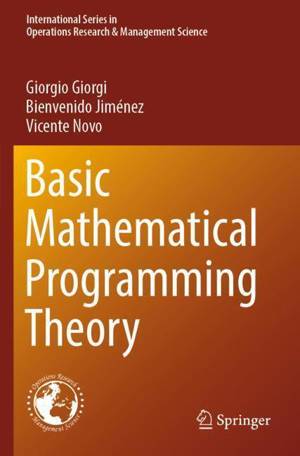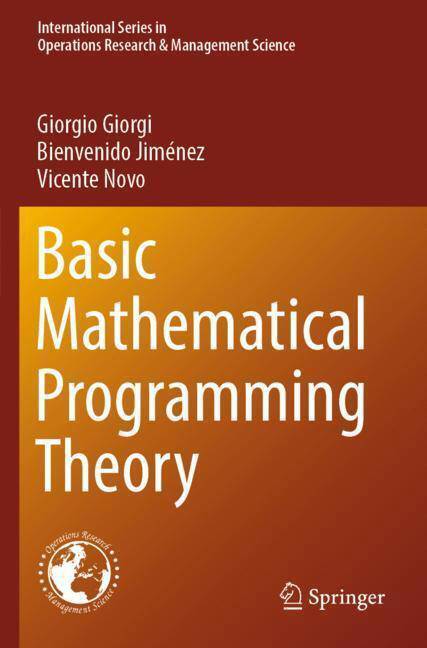
- Afhalen na 1 uur in een winkel met voorraad
- Gratis thuislevering in België vanaf € 30
- Ruim aanbod met 7 miljoen producten
- Afhalen na 1 uur in een winkel met voorraad
- Gratis thuislevering in België vanaf € 30
- Ruim aanbod met 7 miljoen producten
Zoeken
€ 144,45
+ 288 punten
Uitvoering
Omschrijving
The subject of (static) optimization, also called mathematical programming, is one of the most important and widespread branches of modern mathematics, serving as a cornerstone of such scientific subjects as economic analysis, operations research, management sciences, engineering, chemistry, physics, statistics, computer science, biology, and social sciences. This book presents a unified, progressive treatment of the basic mathematical tools of mathematical programming theory. The authors expose said tools, along with results concerning the most common mathematical programming problems formulated in a finite-dimensional setting, forming the basis for further study of the basic questions on the various algorithmic methods and the most important particular applications of mathematical programming problems. This book assumes no previous experience in optimization theory, and the treatment of the various topics is largely self-contained. Prerequisites are the basic tools of differential calculus for functions of several variables, the basic notions of topology and of linear algebra, and the basic mathematical notions and theoretical background used in analyzing optimization problems. The book is aimed at both undergraduate and postgraduate students interested in mathematical programming problems but also those professionals who use optimization methods and wish to learn the more theoretical aspects of these questions.
Specificaties
Betrokkenen
- Auteur(s):
- Uitgeverij:
Inhoud
- Aantal bladzijden:
- 433
- Taal:
- Engels
- Reeks:
- Reeksnummer:
- nr. 344
Eigenschappen
- Productcode (EAN):
- 9783031303265
- Verschijningsdatum:
- 19/07/2024
- Uitvoering:
- Paperback
- Afmetingen:
- 155 mm x 24 mm
- Gewicht:
- 675 g

Alleen bij Standaard Boekhandel
+ 288 punten op je klantenkaart van Standaard Boekhandel
Beoordelingen
We publiceren alleen reviews die voldoen aan de voorwaarden voor reviews. Bekijk onze voorwaarden voor reviews.








